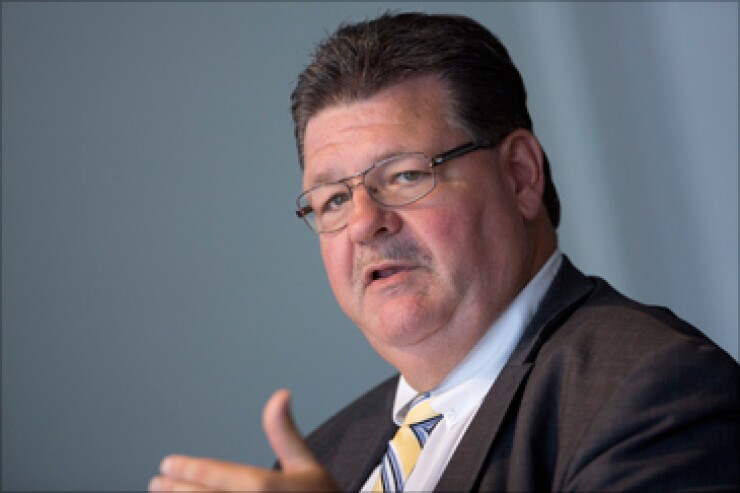
Ginnie Mae has made a key change to its playbook: focus less on recruiting new players, and more on training up the ones already on its team.
The agency plans to spend fewer resources on bringing in new issuers, and more on ensuring current issuers are fully participating in its program, its president, Ted Tozer, said Monday at the Mortgage Bankers Association annual convention in San Diego.
Ginnie will be looking especially at those approved lenders that are not issuing mortgage-backed securities on a regular basis, Tozer said.
Limited resources are the reason, he said, noting that Ginnie only has 130 employees and it is unlikely to get funding to add more.
There are issuers who had previously created securities on a regular basis but right now are in "runoff" mode and are driving up Ginnie's costs, Tozer said. It also wants to ensure it has a good mix of loans in its securities.
"We want to make sure at the end of the day the industry and the individual lenders in our program…[are] successful," Tozer said.
Ginnie Mae will not cut off any companies already in the pipeline looking to get issuer approval, he added.
Banks vs. Nonbanks
Meanwhile, Edward Golding, principal deputy assistant secretary at the Department of Housing and Urban Development, addressed the familiar issue of
The rising participation of nonbanks is a concern for those who worry nonbanks hold less capital than banks and would be able to cover fewer losses if loans went bad.
Golding said he, unlike Tozer, is not worried because there is a wide diversity of business models among banks and nonbanks.
"Ginnie Mae's worries are different than mine," because FHA is a mortgage insurance program, and Golding's focus is on maintaining the quality of the origination process.
Without naming names, Golding commented on those lenders that have
FHA's mission is grounded on the fact that everyone needs some place to live, whether they own their home or are renting. FHA funds multifamily properties.
"We need a housing finance system that serves the entire American public," Golding said.
GSE Reform?
Separately, a White House official again sought to
Fannie Mae and Freddie Mac cannot be allowed to survive with "their flawed charters intact," said Michael Stegman, senior policy adviser for housing.
Recapitalization is the wrong path, he said, pointing to several bipartisan initiatives in Congress as better options for the future of the secondary market. He also argued that recapitalizing the GSEs would not provide any additional support for affordable housing.
Wish Lists
Stegman hopes for more action in the next year on President Obama's access-to-credit agenda.
Golding wants to see more done to deal with the pent-up demand for homeownership, especially creating more first-time homebuyers.
Ginnie Mae should do whatever it can to support the issuers in its program so that it has a robust base of participants, Tozer said.




